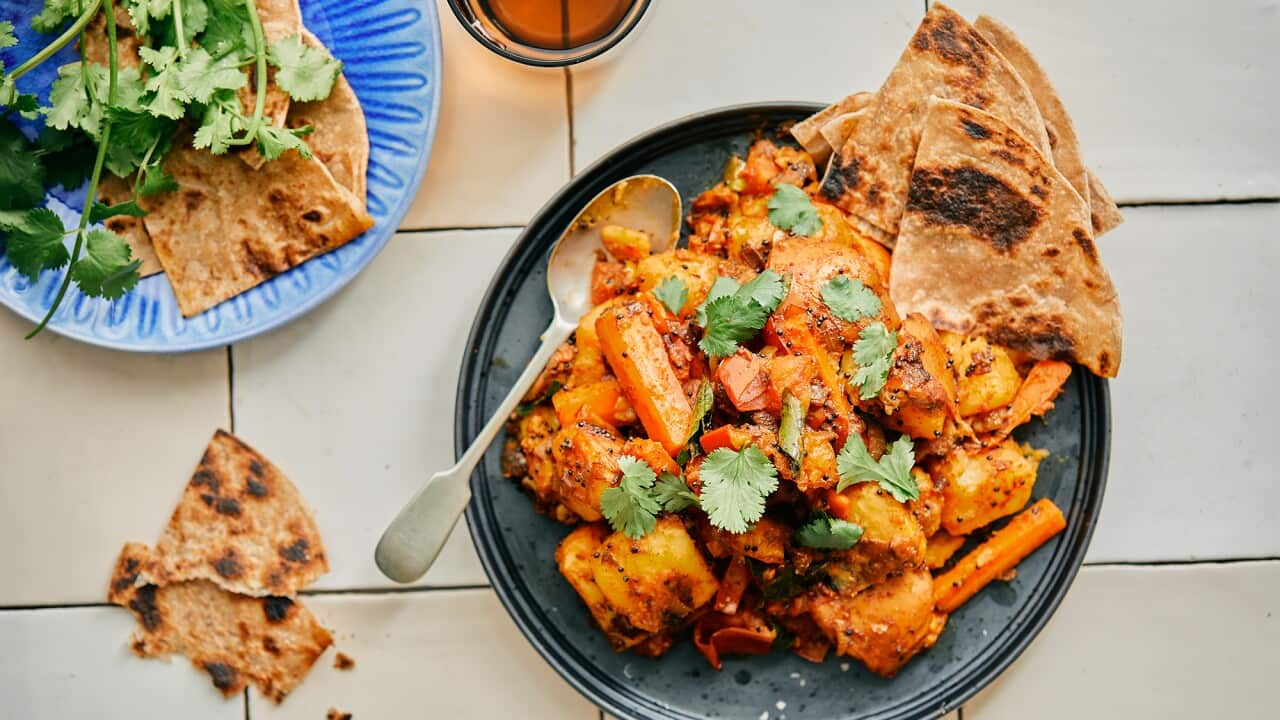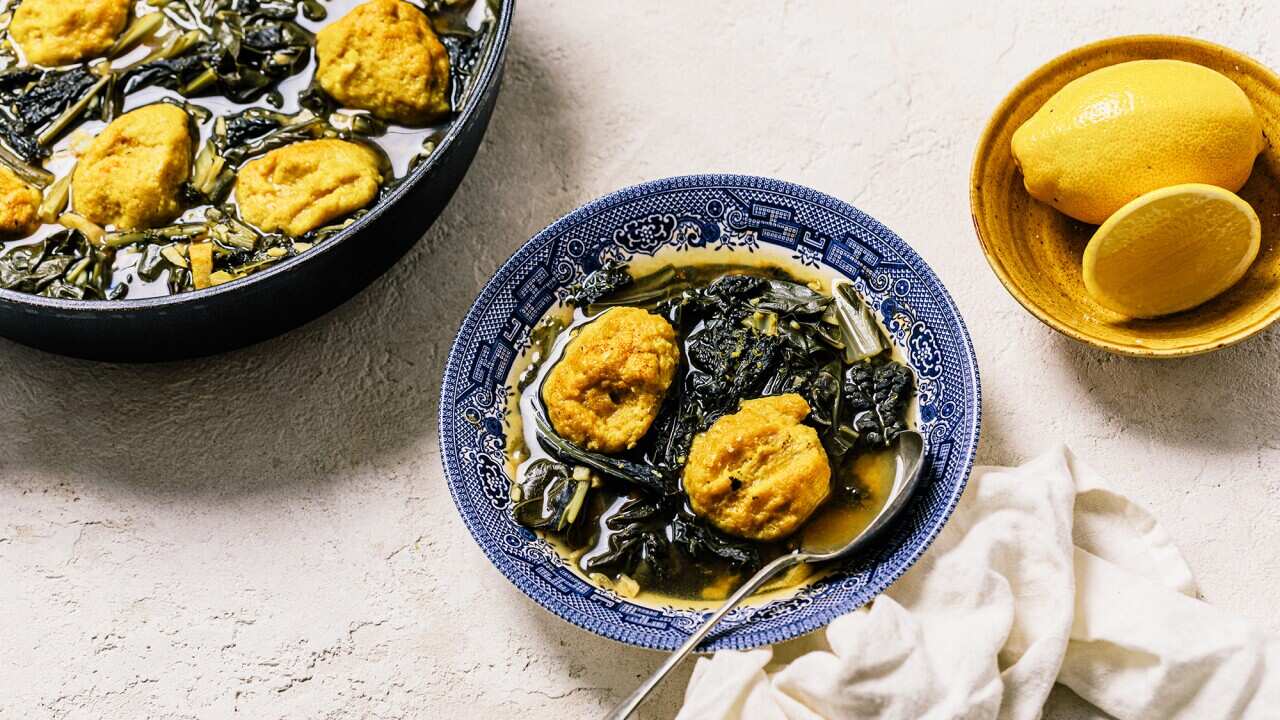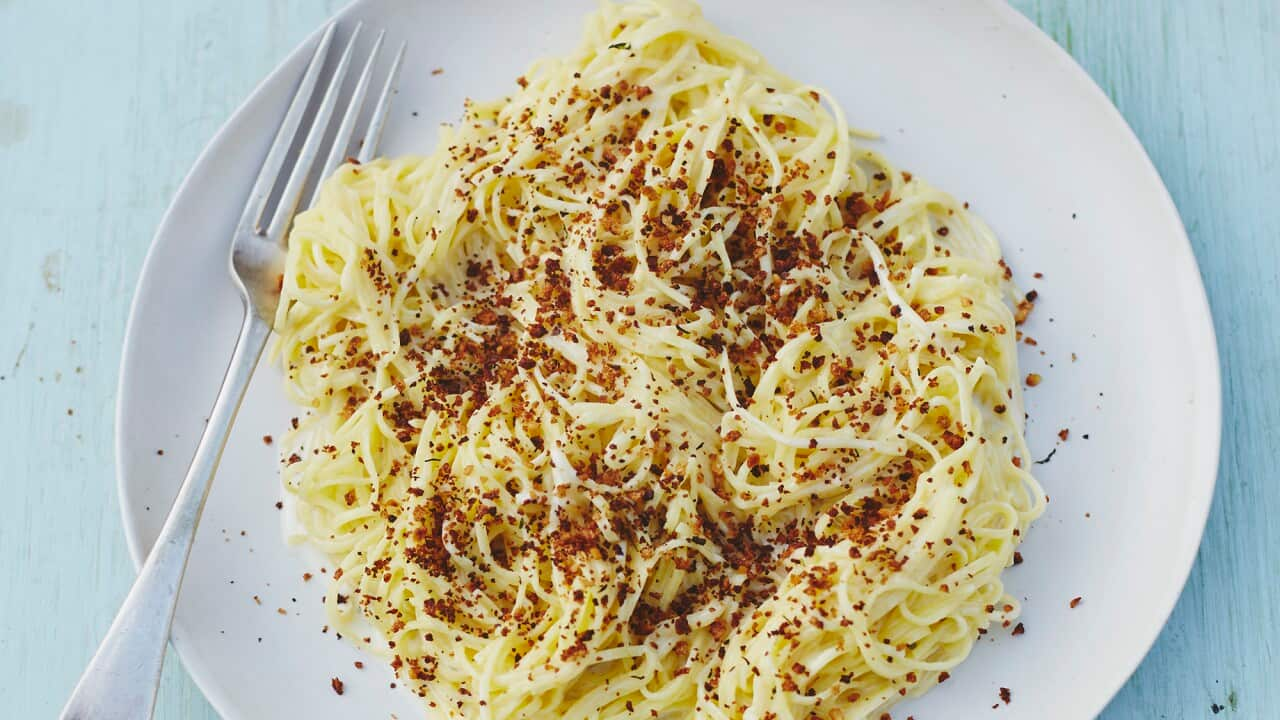serves
6-8
prep
20 minutes
cook
3 hours
difficulty
Easy
serves
6-8
people
preparation
20
minutes
cooking
3
hours
difficulty
Easy
level
Ingredients
- 6 garlic cloves, roughly chopped
- 40 g (1½ oz/⅓ cup) salt
- 1 tbsp sweet paprika
- 2 tbsp smoked paprika
- 100 g (3½ oz) dried oregano
- 50 g (1¾ oz/½ cup) ground cumin
- 50 g (1¾ oz) merquen (see Note)
- 150 ml (5 fl oz) white wine vinegar
- 2 kg (4 lb 6 oz) pork belly, excess fat trimmed, ribs still attached and split down the middle (but not all the way through)
Marinating time overnight
Instructions
Place the garlic and salt in a mortar and pestle and crush until coarse.
In a mixing bowl, combine the garlic and salt with the paprika, oregano, cumin and merquen. Slowly add the vinegar and set the marinade aside.
With a sharp knife, carefully take off the skin and excess fat from the pork belly. You can ask your butcher to do this for you. Score the fat side of the belly and in between the ribs, and place in a large baking tray. Pour the marinade over the belly and rub in well all over.
Leave in the tray, cover and refrigerate overnight (or up to 2–3 days if you can).
Ensure you bring the meat to room temperature before cooking. Remove the pork belly from the marinade, reserving the juices for basting.
Cook over coals over low heat – around 150–200°C (300–400°F) – for 2½–3 hours, starting bone-side down, turning every hour or so to ensure even cooking. Baste regularly with reserved marinade. After about 2 hours, split the ribs down the centre and continue to cook until ready – about 30 minutes to an hour. You want the pork to be golden.
Notes
• Merquen is a Chilean spice similar to dried and smoked chilli flakes.
• If you don’t have a charcoal grill, put the pork in a roasting tray and bake in a 170°C (340°F) oven for 2½ hours, basting the pork every 15 minutes.
Recipe from Food Safari Fire by Maeve O'Meara (Hardie Grant, hbk, $55). Photography by Toufic Charabati.
starts Thursday 7 January 2016 at 8pm on SBS. Visit the for recipes, videos and more.
Cook's Notes
Oven temperatures are for conventional; if using fan-forced (convection), reduce the temperature by 20˚C. | We use Australian tablespoons and cups: 1 teaspoon equals 5 ml; 1 tablespoon equals 20 ml; 1 cup equals 250 ml. | All herbs are fresh (unless specified) and cups are lightly packed. | All vegetables are medium size and peeled, unless specified. | All eggs are 55-60 g, unless specified.








